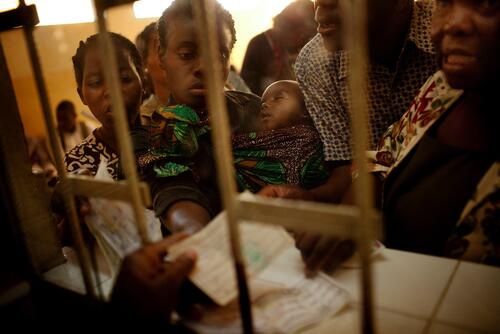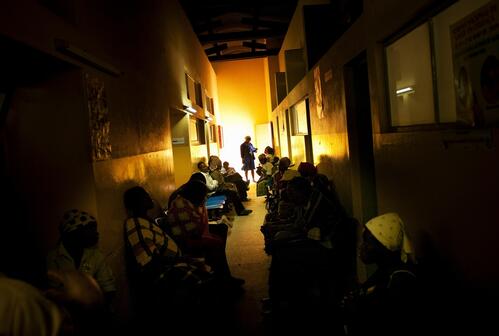Executive Summary
At the end of the 90’s, Médecins Sans Frontières (MSF) got involved in HIV/AIDS because we viewed it as an emergency: today, MSF still believes this is a crisis requiring an exceptional response.
Since the start of the epidemic, HIV/AIDS has created an acute public health crisis in many countries requiring an emergency response to the resulting high mortality and the spread of the disease. To date, much has been done to tackle HIV, but the urgency of the situation still calls for a sustained and expanded response over a long period of time — the battle is not over yet.
Through its medical humanitarian work in the majority of the worst-affected countries in sub-Saharan Africa, MSF has recently started to observe a worrisome turn-around among the donor community. After years of political willingness and financial commitment to combat HIV/ AIDS, donors now seem to be disengaging from the fight, leaving behind people who are still in dire need of lifesaving treatment.
In 2009-2010, MSF carried out in-depth field analyses in eight key countries - Malawi, Mozambique, Zimbabwe, South Africa, Lesotho, Kenya, Uganda, Democratic Republic of Congo (DRC) - where we have been providing HIV/AIDS care and treatment for several years. The findings confirm our concerns in terms of donor backtracking on commitments to scale up the fight against the HIV/AIDS epidemic. Today, this disengagement is starting to become visible in the field and the level of HIV care is beginning to deteriorate.
Uncertainty and unreliability of donor funding has stalled the enrollment of new patients in treatment sites and put the supply of anti-retroviral medicines (ARVs) at risk in the medium to long term. Donors have also diluted their initial emergency approach and shifted funding toward other health issues, disregarding the proven cross-benefits of effective HIV/AIDS intervention on healthcare in general. Ironically, at the same time as the level and sources of funding decline, donors expect the money dedicated to combat HIV/AIDS to fund increasingly comprehensive packages, extending to other priorities within the health sector.
A possible donor retreat not only hampers HIV treatment scale-up but also threatens to undermine all the positive effects and future perspectives that high coverage of ART brings in terms of community-wide reduction of mortality, morbidity and transmission.
Any retreat from the current efforts toward ART scale up will have far-reaching and very real negative consequences for patients and front line workers in HIV care.
Combined with the effects of the economic crisis in low income countries and in particular on vulnerable people, donor fatigue on HIV will further widen the HIV treatment gap in sub-Saharan Africa.






